8 British GPs which have turned the F1 championship on its head
While the 2020 race looks to be between Mercedes' pairing, history shows that nothing is assured at the British Grand Prix
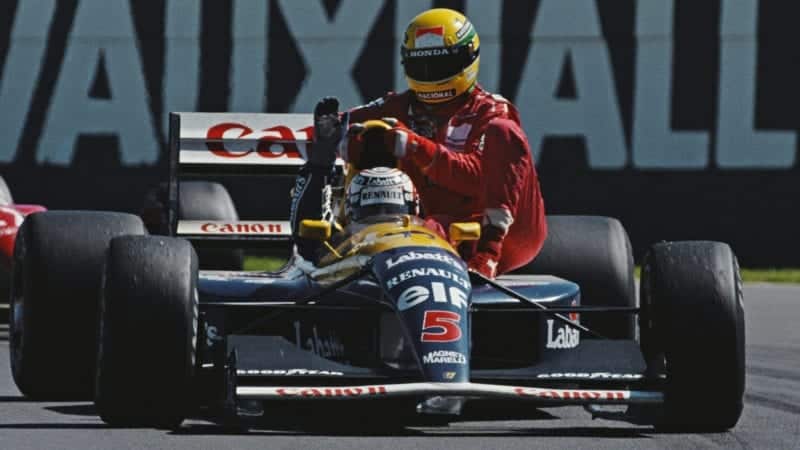
The title protagonists of the 1991 season experiencing differing fortunes at Silverstone
Pascal Rondeau/Allsport/Getty Images
You think you know how a title race is going and then you get to the British Grand Prix.
In its long and storied history, the race has frequently altered the course of the Formula 1 World Championship through a result that went against the grain; a driver and car package that finally gelled; or intervention by stewards.
Its typical mid-season slot is the ideal opportunity for teams and drivers to reset their season and challenge for the title before it’s too late.
Could that still be the case when the title looks settled, just three races in? Will Valtteri Bottas start shovelling a bit more porridge down, and take the fight to Lewis Hamilton on home turf?
Silverstone may well offer the springboard, as we look back on some of the many occasions when this race has had a significant influence on the championship outcome.
1976 British Grand Prix – Brands Hatch
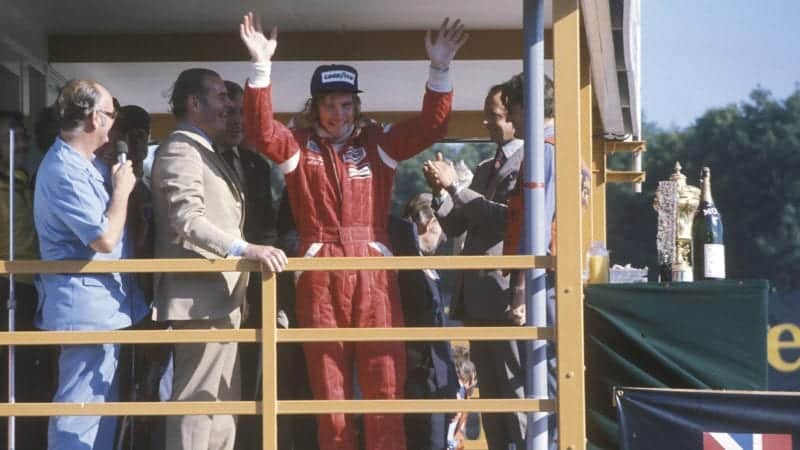
James Hunt takes waves to the crowd after his win
Grand Prix Photo
James Hunt may have won the previous race at Paul Ricard, but history often casts the next race Brands Hatch as the start of his famous fightback.
After being rear-ended in a Turn One pile-up by Clay Regazzoni, Hunt abandoned his race car to take the restart in the spare.
The stewards almost prevented him from doing so, but for some mob-rule intervention by the home crowd. As boos and bottles rained down on the F1 fraternity, officials caved and allowed Hunt to race.
The McLaren driver then tracked Ferrari’s Niki Lauda for 40 laps before making a famous move at Druids. The Brit went on to win, capping a performance that his team manager Alastair Caldwell described as Hunt’s very best.
Although Hunt was later disqualified for not completing the opening lap, the momentum started a title charge from which he eventually emerged victorious in Fuji.
1984 British Grand Prix – Brands Hatch
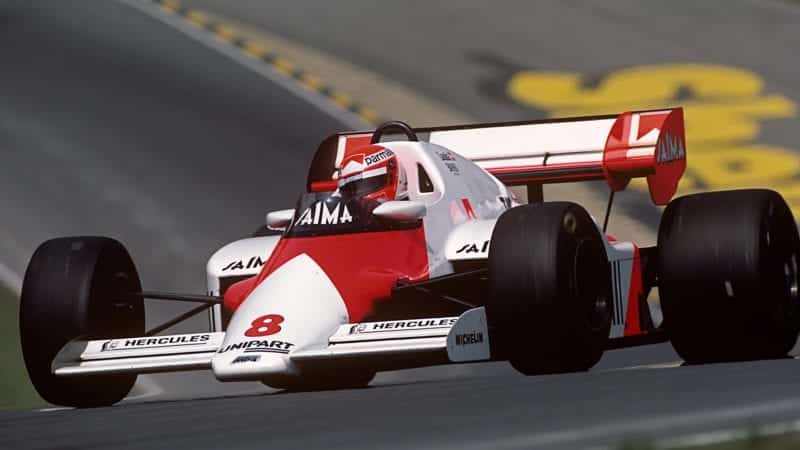
Niki Lauda on the way to victory in 1984
Paul-Henri Cahier/Getty Images
Alain Prost rolled into Brands Hatch with an 11.5-point margin over McLaren stablemate Lauda, but the Austrian would begin to turn it around from here.
Prost hounded poleman Nelson Piquet early on, with Lauda observing from further back in his usual patient style. The lead McLaren forced the issue into Paddock Hill Bend, and Lauda opportunistically followed him through.
The Frenchman’s gearbox then failed, allowing Lauda to dominate the remaining laps. Not a classic race, but a beautiful example of Lauda’s smooth driving style winning out.
He would only take two more victories to Prost’s four that year, but greater consistency allowed him to take the title by half a point.
1985 British Grand Prix – Silverstone
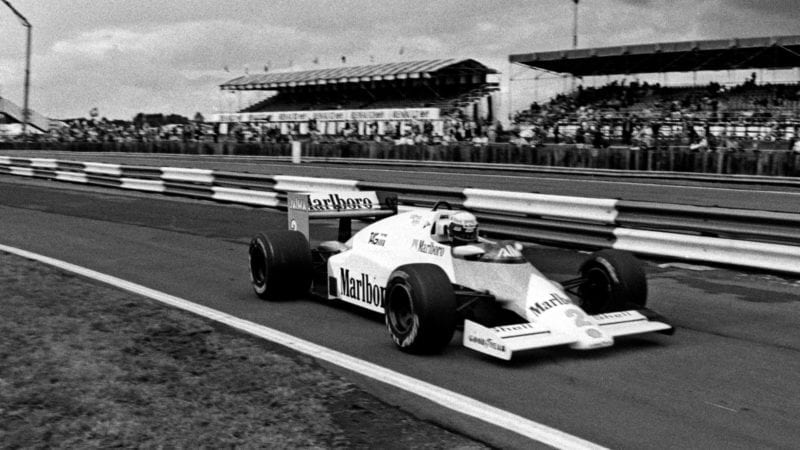
Nobody could stop Prost in 1985 at Silverstone
Bryn Colton/Getty Images
It looked like it might be Michele Aboreto and Ferrari’s year up to this point, but from hereon in the tide began to turn against the affable Italian.
Keke Rosberg chain-smoked his way to a record-breaking pole lap, but Ayrton Senna swept into the lead from fourth at lights out. Now in fourth once the order shook out, McLaren’s Alain Prost used his superior TAG turbo to blast past Andrea de Cesaris, before Rosberg broke down.
Senna and Prost duelled it out before the Frenchman squeezed past at Becketts. Prost lapped the entire field (including an embarrassed Alboreto) in a crushing victory.
The Ferrari would win next time out, but the die for the rest of the season had already been cast.
1991 British Grand Prix – Silverstone
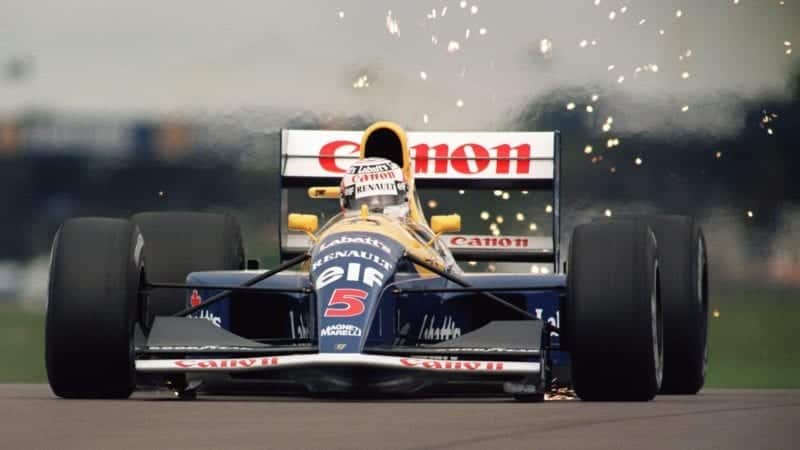
Red five out in the lead at home
ERIC FEFERBERG/AFP via Getty Images
Senna had laid down somewhat of gauntlet at the beginning of 1991, by winning the first five races in a row. Never one to shirk a challenge, Nigel Mansell still found a way to fight back – once his FW14 stopped breaking down.
The Brit showed he meant business by taking pole by over 0.6sec, the Williams-Renault perfectly in tune with its Silverstone surroundings. Senna stole into the lead into the race start, before Mansell swept back in front at Copse, bringing on a classic Silverstone roar from the crowd.
From here, “Our Nige” was irresistible, giving fanatics the win they craved and starting a championship scrap which would last until Suzuka.
1994 British Grand Prix – Silverstone
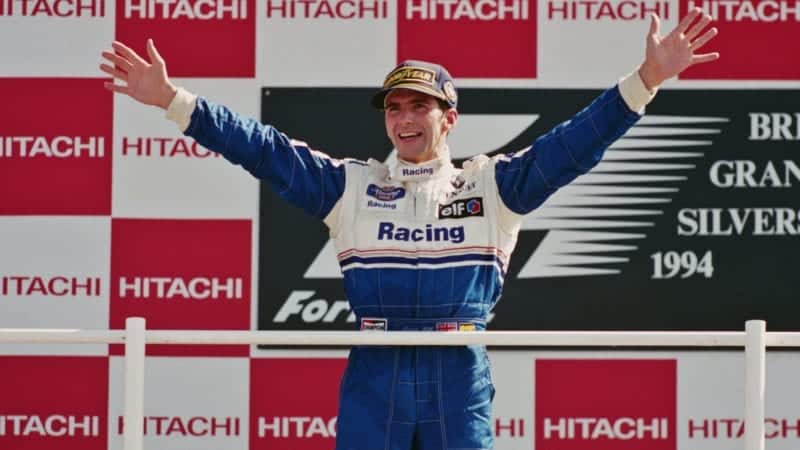
Damon Hill took a vital home win for his title hopes in 1994
Anton Want/Getty Images
Quite understandably, Williams were struggling to get to grips with 1994. Their FW16 was already a difficult beast, then the tragic death of their new lead driver Senna shook them to the core.
Recently-promoted number one Damon Hill was now having a hard time of it up against Michael Schumacher. By the time the circus rolled into Silverstone, the man from Kerpen had chalked up six wins whilst Hill had just the one, leaving a yawning gap between the two in the championship.
Hill squeaked into pole by 0.003sec from Schumacher but was bizarrely overtaken by the German twice on the formation lap. Schumacher was given a stop-and-go penalty, but apparently thinking he had a choice in the matter, elected not to take it. He was then shown the black flag, which he ignored also.
An emotional Hill won, saying he felt he had “completed the hole in my father’s record”, whilst Schumacher was disqualified – the championship fight was on.
1997 British Grand Prix – Silverstone
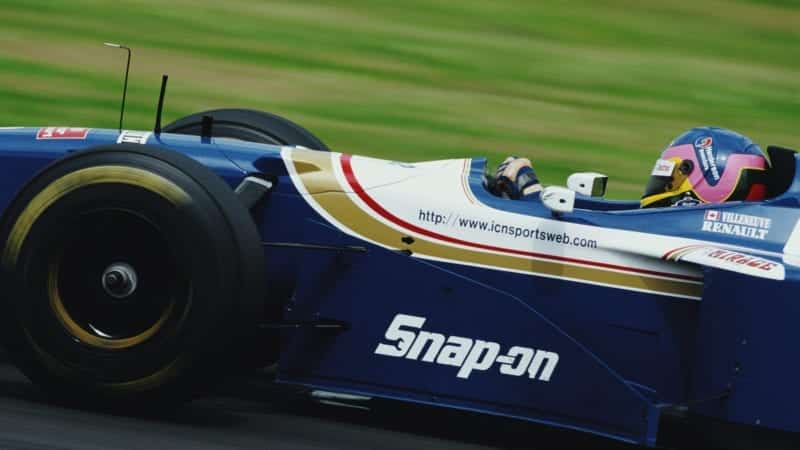
Jacques Villeneuve recovered to win at Silverstone in 1997
Darren Heath/Getty Images
Schumacher, now driving for a rejuvenated Ferrari, was enjoying a 14 point lead over Williams’ Jacques Villeneuve going into Silverstone ‘97, but the French-Canadian began to claw it back from this point onwards.
It was all looking rosy after he led from first on the grid, but a stubborn wheel-nut left him stranded in the pits at the first stop. Schumacher claimed the lead with a dominant margin of 40sec, only to be felled by a wheel bearing failure. Mika Hakkinen then led from a resurgent Villeneuve.
Whilst soaking up the pressure from the Williams, the Finn’s Mercedes engine decided it was all a bit too much and destroyed itself, handing a grateful Villeneuve the reprieve he needed to take victory.
The Williams took the fight to Schumacher from here, with things coming to a head at Jerez.
The Ferrari driver attempted to take the Canadian out, failed and was unceremoniously thrown out of the championship – the title was Villeneuve’s.
2007 British Grand Prix – Silverstone
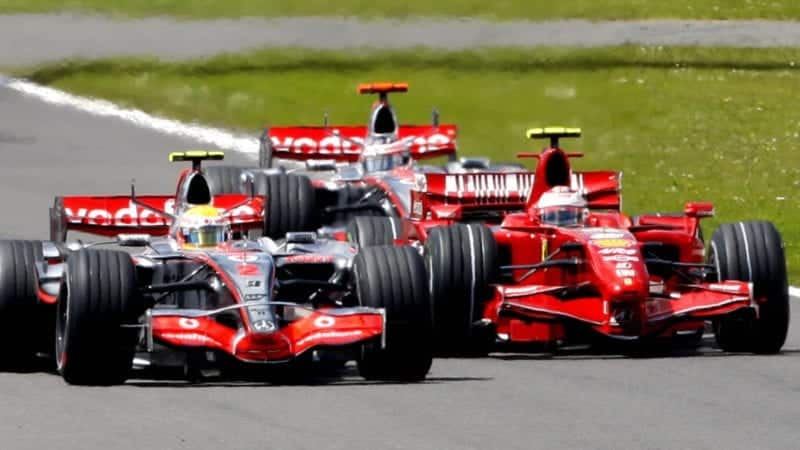
Kimi Räikkönen came out on top against both McLaren’s at Silverstone in ’07
BERTRAND GUAY/AFP via Getty Images
Back during Ferrari’s last championship-winning cycle with a prime cut of quintessential Kimi Räikkönen during his championship year to boot.
Lewis Hamilton led during the first stint, but a fuel hose mishap delayed his pit exit and handed the lead over to Fernando Alonso.
The McLaren team tried to push the envelope with a three-stop strategy, but not for the last time in Alonso’s career, his challenge was stymied by traffic.
Räikkönen took full advantage and came out ahead of the Spaniard, never relinquishing a lead which he converted into the win.
After being called out weeks earlier by Ferrari boss Luca di Montezemolo for apparently not trying hard enough, this was the start of Räikkönen’s almost glacial ascendancy to the 2007 crown.
2010 British Grand Prix – Silverstone
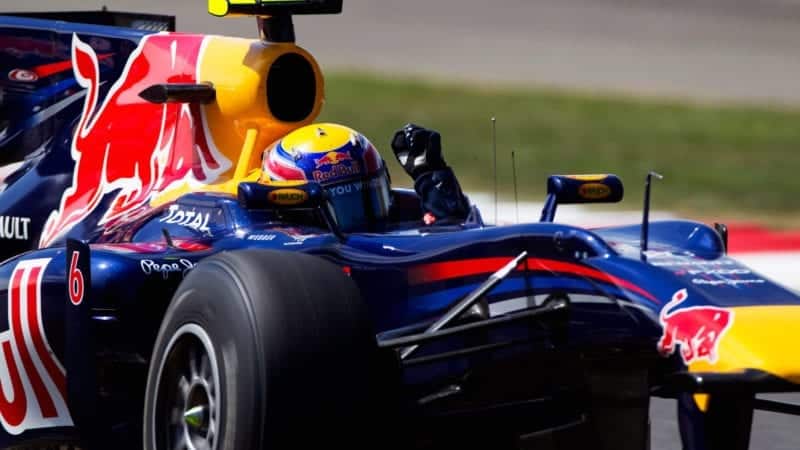
“Not bad for a number two driver” – Mark Webber celebrates his win in 2010
Peter Fox/Getty Images
2010 was certainly a vintage British Grand Prix, one which only added fuel to the fire of an epic four-way fight for the championship.
Mark Webber got the hump after his Red Bull team decided to take the new and improved front wing off his car and give it to Sebastian Vettel.
The Aussie, out for revenge, vaulted past German at the start and never looked back. The latter picked up an early puncture from contact with Hamilton, whilst Felipe Massa did the same after some wheel-rubbing with team-mate Alonso.
Alonso was then served with a penalty after cutting a chicane to overtake Robert Kubica, meaning he finished 14th. In one of his more modest proclamations, Alonso announced that despite being 47 points down on Vettel, he could still win the world championship.
To be fair he was almost right, but for a pesky Vitaly Petrov getting in his way.
